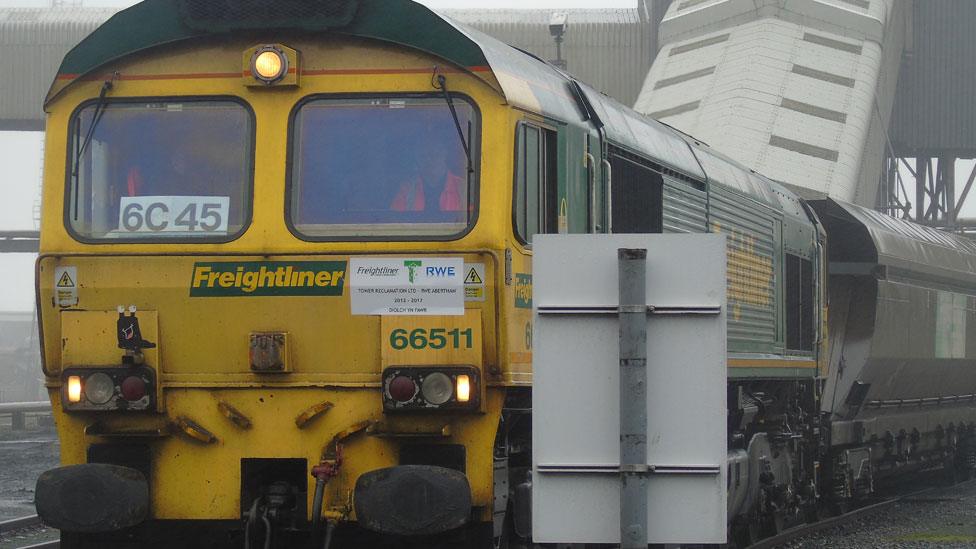UN expert urges Ffos-y-Fran opencast health inquiry
- Published
- comments
An animated map showing Ffos-y-Fran opencast site near Merthyr Tydfil and villages at the top of the Rhymney valley
A UN report will urge an independent investigation into the potential health impacts of the UK's largest opencast coalmine, BBC Wales has learned.
Residents living alongside Ffos-y-Fran near Merthyr Tydfil have led a long campaign, alleging that they are affected by air and noise pollution.
The report's author said complaint handling raised "many concerns" about the UK's approach to regulation.
The mine operator defended its record and claimed the report was biased.
The UN's special rapporteur on hazardous substances and wastes Baskut Tuncak , externalmet campaigners in Merthyr Tydfil as part of an official visit to the UK in January.
But the mine's operator Miller Argent accused Mr Tuncak of bias and said the company had a "proud record of mining responsibly".
His role is to assess and advise governments about their efforts to protect the human rights of communities at risk of pollution, such as the rights to life, health and adequate housing.
In an interview with BBC Wales, he said the plight of the community surrounding Ffos-y-Fran was "top of the list" in terms of the "many pressing issues" he had encountered.
"The first observation that came to mind was how incredibly close this community is to a massive open pit coalmine," Mr Tuncak said.
"I heard allegations of very high rates of childhood asthma and cancer clusters within the community. But despite those allegations I didn't hear any evidence of a strong intervention by the government to investigate or any strong reaction by the companies concerned to investigate themselves."
His official report will be handed to the UN's Human Rights Council in Geneva in September.
The UK government said it will respond after this happens.
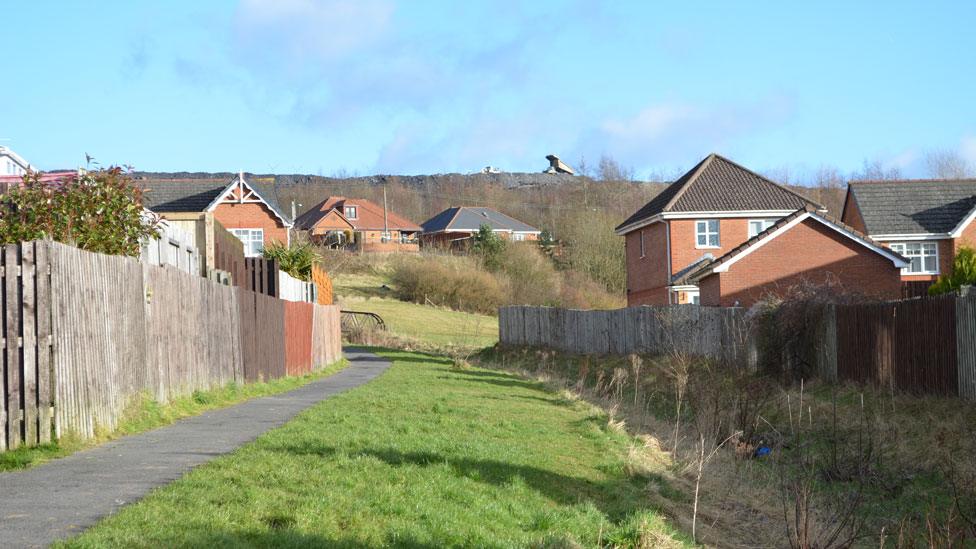
The closest homes are 40m away
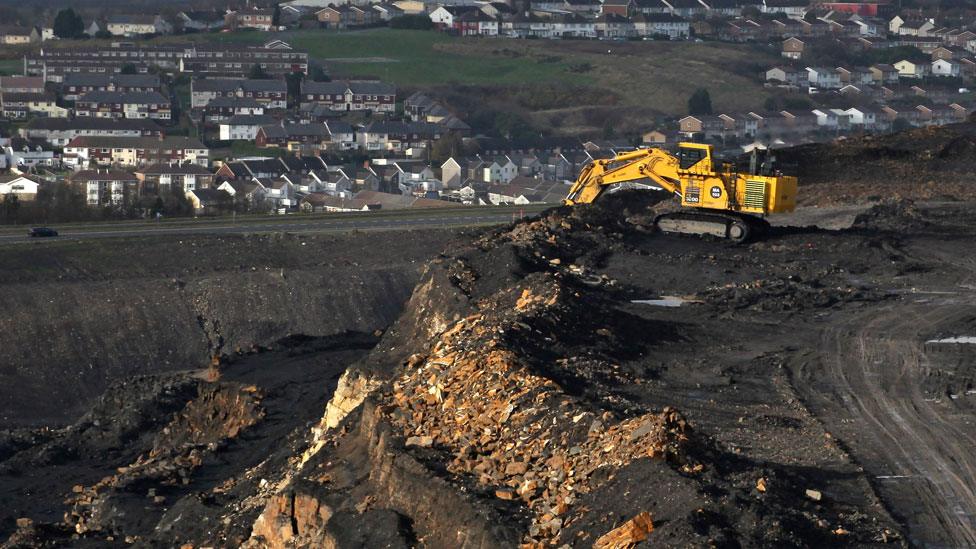
The site has coal reserves of 11 million tonnes and employs more than 200 people
Work to reclaim more than 11 million tonnes of coal over the course of 17 years started at the Ffos-y-Fran site in 2007, despite numerous court battles, a public inquiry, petitions and protests.
The closest houses are less than 40m (132ft) away from the site, which is the size of some 400 football pitches.
There are also schools, playgrounds and a nursery nearby.
The decision to approve the application was taken by a cross-party Welsh Assembly committee chaired by the then Environment Minister Carwyn Jones, now First Minister.
But the High Court quashed its decision after it was claimed Mr Jones had made his mind up before the planning committee met, external.
Mr Jones denied the accusations and judges backed the assembly and allowed the opencast application on appeal.
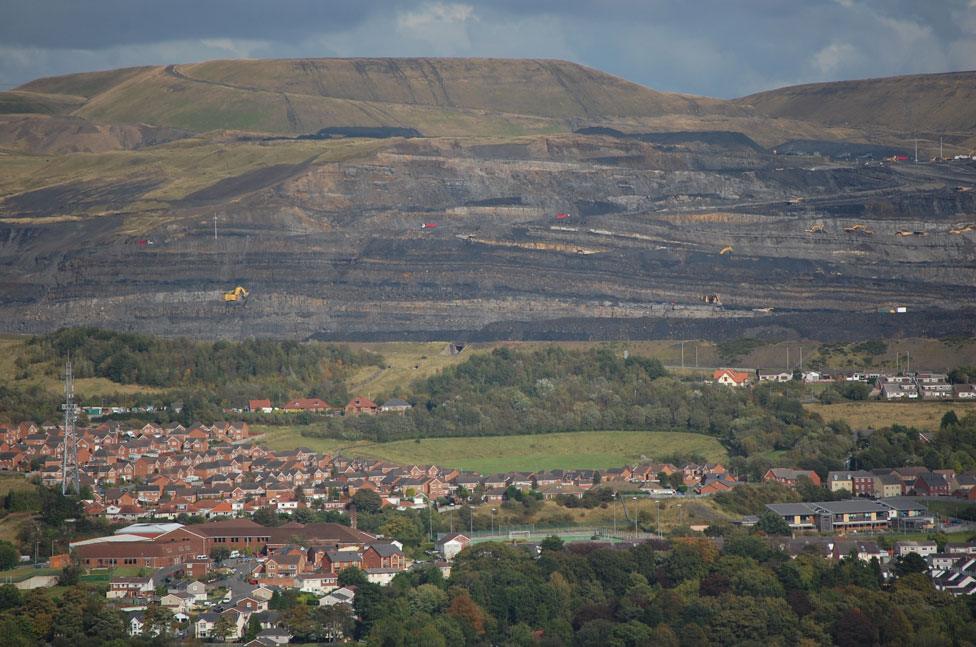
Mining at Ffos-y-Fran started in 2007 with a 17-year plan
Residents were told that modern mining methods would mean they would not be affected by pollution, while the operation would restore 1,000 acres of land which was once riddled with old mine shafts and was used to dump spoil.
That restoration work has already started on areas which have been mined. There are another seven years to go but the plan is for the whole site to eventually be restored to open moorland.
In the meantime, the Welsh Government has imposed a 500m buffer-zone between any new opencast mines in Wales and the communities around them.
Terry Evans, chairman of local campaign group Residents Against Ffos y Fran, lives closest to the site - 37m from the boundary - and says he is affected by "absolutely phenomenal amounts of dust".
"On a fine day when the wind is blowing from an easterly direction you just see it coming over us - it's frightening."
In previous years he said the mine's operator sent window cleaners and gave out "envelopes of money to get our houses clean".
Chris and Alyson Austin say Ffos-y-Fran opencast is 'far worse than we imagined'
Fellow campaigners Chris and Alyson Austin, who live a few hundred yards away, talk of having their lives ruined.
"I find it difficult to put the washing out on the clothes line or enjoy my garden. On hot days we can't even open the windows," Ms Austin said.
"And all that dust goes straight into our lungs," Mr Austin added, "with the elderly and children particularly affected."
Noise pollution has also been an issue for the community, according to Bob Griffin, formerly a local councillor.
"I'd hear of kids being disturbed because they couldn't get to sleep at night because it sounded like a heavy truck outside with its engine idling all night."
They claim their complaints have not been listened to and calls for an investigation into the health implications dismissed.
Five hundred locals attempted to take court action as a group, but their application was refused by the High Court as they were deemed unable to afford it.
"We've explored every avenue, every opportunity that was available to us," Mr Austin insisted.
"You go to the MP - it's not a Westminster issue, you go to the AM - they say it's for the local authority, you go to the local authority and they say speak to the mining company. It's 'send the fool further' all the time."
Miller Argent said it supports 200 well-paid, local jobs and affordable electricity generation across the UK.
It wants to expand its operations and has applied for a new 478-hectare (1,180-acre) opencast mine at Nant Llesg near Rhymney. Caerphilly council rejected the plans in August 2015 but the company is appealing against that decision.
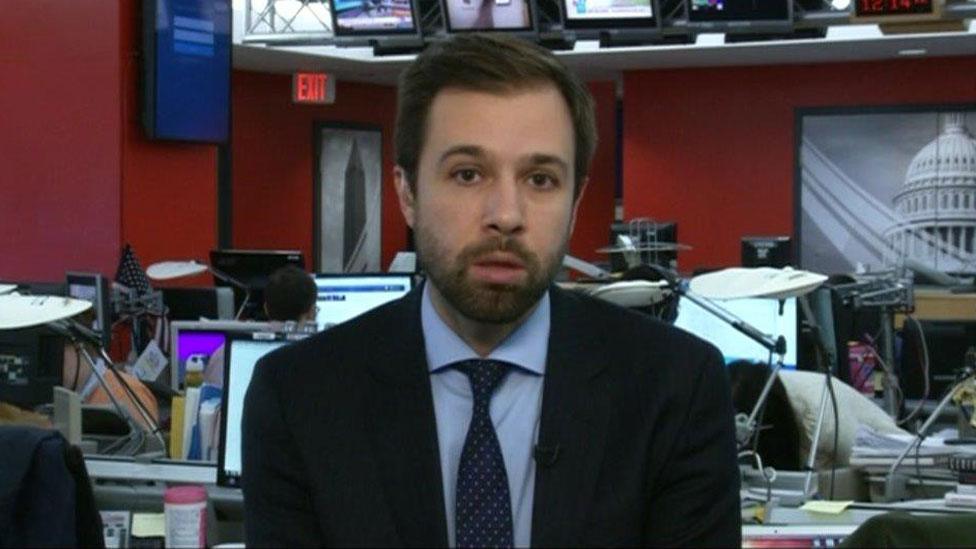
US-based Baskut Tuncak is a specialist international lawyer who was appointed to his UN role in 2014
Mr Tuncak said he found the way the community's concerns had been handled by the authorities to be inadequate, with "various layers of government shifting responsibility".
"I heard some dismissal of certain allegations as being more linked to lifestyle choices or other factors among this working class community, but what I didn't see was a solid investigation by the authorities to look into these claims.
"Ultimately it falls to the UK central government," he said.
Mr Tuncak explained that while Welsh ministers in Cardiff Bay had devolved authority over environmental issues such as air pollution, "they often don't have the resources to effectively monitor and enforce compliance".
"And even though they themselves have transferred certain authorities to local councils, that is also not often followed with commensurate financial resources to ensure adequate enforcement that the community has a right to expect."
The result for people living near Ffos-y-Fran had been "a decade of frustration", as they "tried to engage with processes and have access to justice".
More legal challenges
Ms Austin said Mr Tuncak had "hit the nail right on the head".
She is now attempting to take a case to the European Court of Human Rights.
"We've spent so much time dealing with the council, dealing with the company, dealing with Welsh Government and nobody is interested in resolving this issue. There are times when we've just sat here in tears."
Haf Elgar, acting director of Friends of the Earth Cymru said the case had highlighted a "flawed system" of environmental regulation in the UK and wider issues around "lack of access to justice for communities like those living in Merthyr".
She said an independent investigation into the specific circumstances surrounding Ffos y Fran should be initiated by the UK Government "as soon as possible".
Baroness Christine Humphreys of the Welsh Liberal Democrats said she felt the community in Merthyr Tydfil had been "insulted", having been told that the illnesses they were highlighting were due to "a working class way of life".
She is a member of a House of Lords committee which recently criticised new rules for individuals bringing legal challenges to protect the environment.
"I'm really pleased that the special rapporteur has highlighted the situation at Ffos-y-Fran. It's about time that something happens - and it's taken somebody from outside the UK to come in and do that for us."
Mr Tuncak's official report is due to be presented to the UN's Human Rights Council in Geneva in September.
His 15-day fact-finding mission to the UK was at the invitation of the Westminster government.
A specialist in environmental law, Mr Tuncak was appointed in 2014 to the arm of the UN which works to protect human rights across the world.
'Biased'
A spokesperson for Miller Argent dismissed the campaigners' concerns as "fake news" and told BBC Wales that Ffos-y-Fran had been subject "to many vexatious claims over the years that put livelihoods at risk".
He added that the mine was heavily regulated and had not been prosecuted for any environmental breaches.
"The rapporteur did not even have the courtesy to speak to anyone at Ffos-y-Fran to establish any facts, as such he can only be considered biased and a disgrace to his office. What about the human rights of the 200 families who work at the site?"
Merthyr Tydfil Council also said the rapporteur had not spoken to the authority and his report "appears to be based upon limited and unsubstantiated comments from some members of the community rather than hard facts".
A spokesperson said it failed to mention that some members of the community had made several legal challenges which had been unsuccessful.
It said the operation was granted planning permission after a "call in" by an independent inspector and not the council and was subject to numerous conditions.
The Welsh Government said it supported councils to undertake regular air quality assessments and focus their monitoring and actions in those areas thought to be at the highest risk of non-compliance.
It said it would respond to a consultation on air quality shortly.
- Published9 March 2017
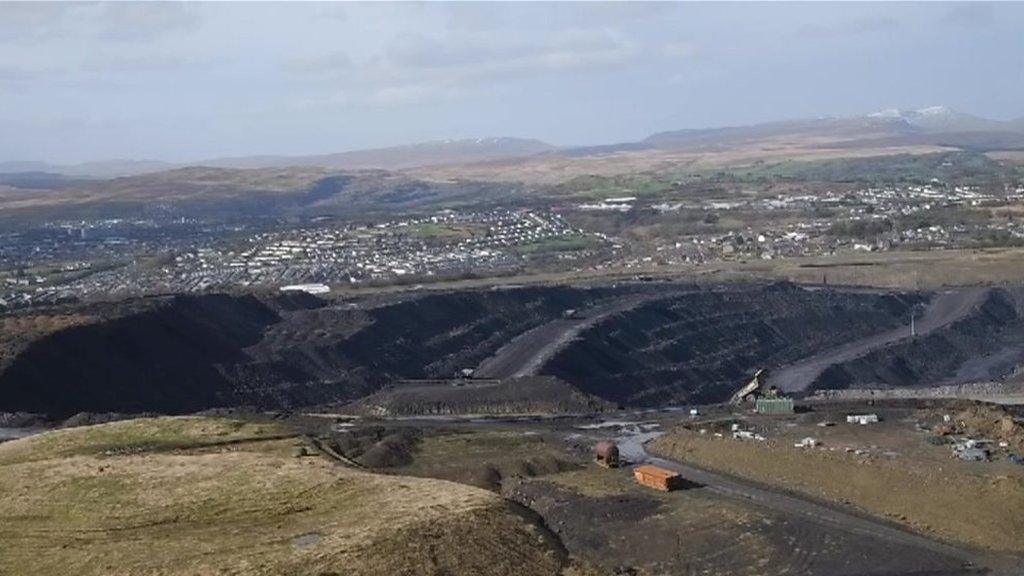
- Published6 March 2017
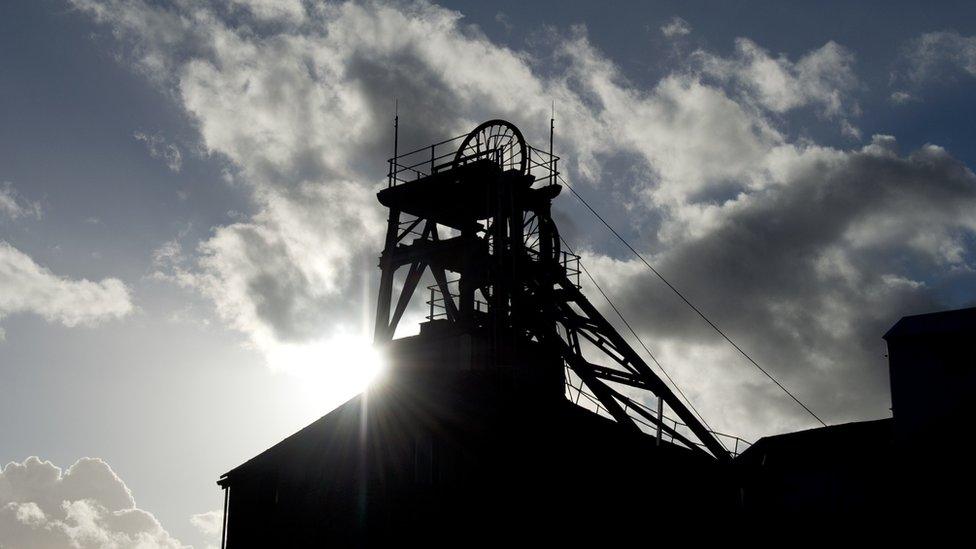
- Published3 May 2016
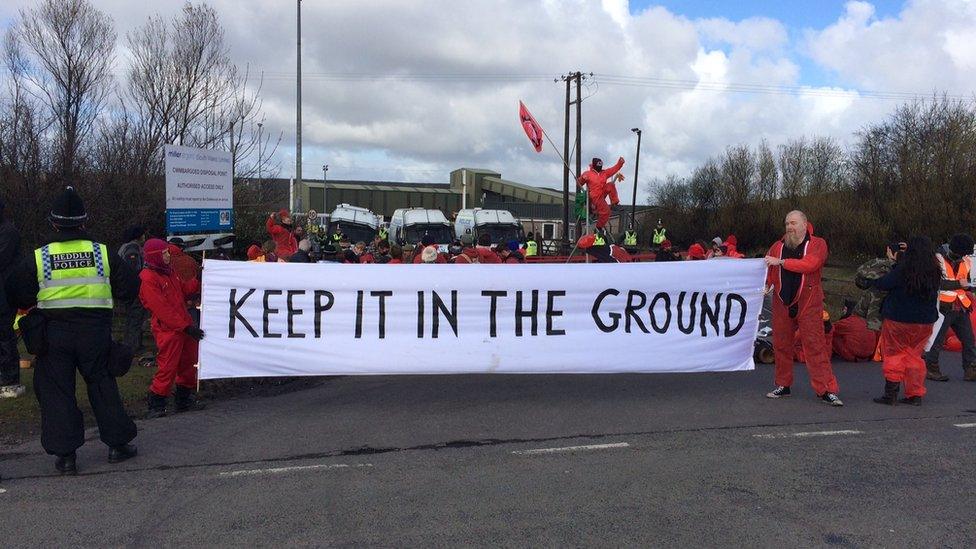
- Published2 May 2016
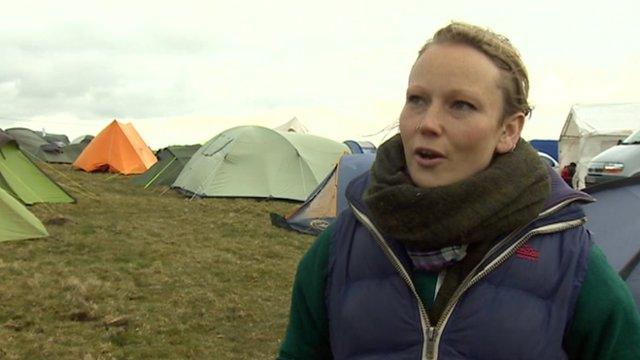
- Published19 March 2015
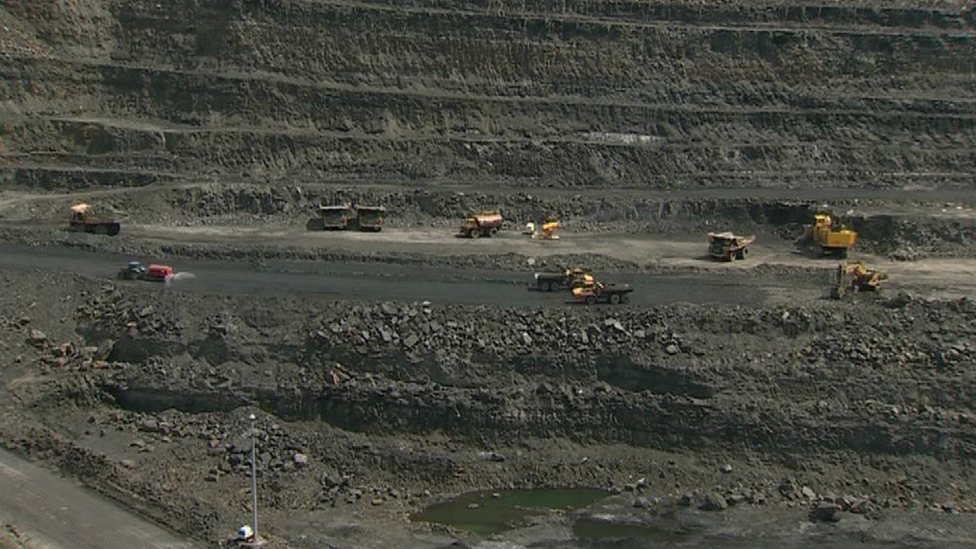
- Published22 February 2017
